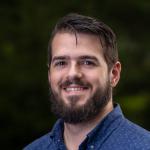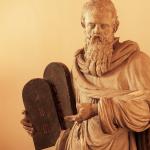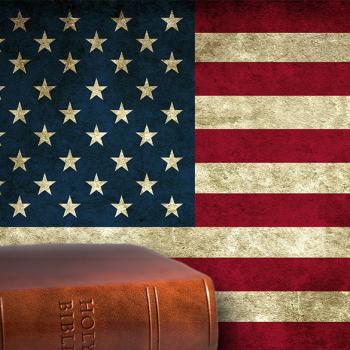
Deconstruction has become a buzzword in American Christianity. This single word can be a beacon of light or the boogeyman under the bed. American Conservative Christianity have demonized the movement, most notably in recent months with a book by Alisa Childers and Tim Barnett. Those who criticize the idea of deconstruction favor more conservative and traditional Christian expression in America.
However, this traditional American expression of Christianity is the exact thing that people are deconstructing. In Oord and Fuller’s book, God After Deconstruction, they note that people are calling into question and doubting ideas about God, the Bible, and Christianity that were once considered immovable. They’re careful to note that it is different from Derrida’s philosophical deconstruction, although I think the fluidity of meaning is actually a great example of what Derrida was arguing for.
In God After Deconstruction, Oord and Fuller have looked over formal and anecdotal evidence for the reason as to why Christians are leaving their old religion. The rise of those who do not identify with any organized religion – the ‘Nones’ – shows that something is changing. From their research, they invite the reader to explore nine common reasons why people leave the faith while offering their solution – Open and Relational Theology.
Common Problems in Christianity
Oord and Fuller identify nine main reasons people leave American Christianity, ranging from high philosophical concepts to our everyday realities. They include the loss of certainty around the reality of the Bible and other religions and modern science about the earth and the fluidity of gender. They note perennial problems of theodicy – unnecessary suffering inside and outside the Church – as well as the need for purpose. Their take on Christian Nationalism is especially potent in America today.
Their arguments are emboldened with the frequent quotes from people who have experienced their own deconstruction. While both Tom and Tripp share their own rethinking experience, the book begins with a story of incredible uncertainty. They take great care to center each person’s experience. There are quotes from thought leaders to ‘normal people’ that help the reader identify the reality of what is happening throughout American Christianity.
Their writing style is formulaic: They demonstrate the problem with a Conservative Christian belief through experience and reason. While they bring the topic to its conclusion under the traditional frame, they offer a solution in Open and Relational Theology. This helps the reader stay on track and task, allowing for more connection with their own propositions.
A Proposed Solution
In order to move past these problems described and encourage the flourishing of all things, Oord and Fuller ask the reader to consider an alternative. Open and Relational Theology (ORT) makes several shifts to traditional American Christianity. I’ll try not to write another book describing this book. Rather, let’s start at the end and platform the ORT pillars. The alternative position they propose hinge on these 5 concepts: openness, relationally, freedom, love, and Jesus.
ORT rejects any sort of determinism and starts with the notion that God is the nature of love. Coercion is not love, therefore there has to be openness, freedom, and relationality. It allows for us to validate and value our own experiences and reject the belief that God allows, permits, or even prescribes evil. ORT gives space for people to evaluate and reject ideas in the Bible that are contrary to what we know about Jesus, science, or the rise of religious nationalism. They also put forth a panentheistic view of syncretism and our need for existential completeness.
Who Should Read This?
Is there a God after deconstruction? They offer this book to those who have found themselves at this crossroads. To the people “who want a vision of the divine in harmony with what they know about themselves and the world of science, arts, and humanities” (19). However, they note that this might be uncomfortable for some. People don’t often choose to rearrange their entire worldview and this can lead to confusion, fear, and isolation. If you’re reconsidering the faith that has been passed on, either generally or in one of the specifics they touch on, this may help you. If you’re comfortable where you are, but are curious with what’s going on in the deep end of the pool, this is a great primer (with fantastic sources for further reading) to dip your toes into how Open and Relational Theology can refigure faith.
 Brad is a dual master’s student, studying history at the University of Rhode Island and a seminary student at Northwind Theological Seminary studying theology and the changing religious landscape in America. His master’s thesis looks at the role of the 20th century American Church in labor and social reforms. He works as a research assistant at the University of Rhode Island’s College of Pharmacy providing education and support for rural New Englanders impacted by the opioid epidemic. Brad spends nights and weekends playing in regional bands as a bassist, guitarist, and vocalist. When not at a computer, he loves to spend time with his wife and chasing his toddler around the house. You can go to his website to get updates on his writing, podcasting, and other events.
Brad is a dual master’s student, studying history at the University of Rhode Island and a seminary student at Northwind Theological Seminary studying theology and the changing religious landscape in America. His master’s thesis looks at the role of the 20th century American Church in labor and social reforms. He works as a research assistant at the University of Rhode Island’s College of Pharmacy providing education and support for rural New Englanders impacted by the opioid epidemic. Brad spends nights and weekends playing in regional bands as a bassist, guitarist, and vocalist. When not at a computer, he loves to spend time with his wife and chasing his toddler around the house. You can go to his website to get updates on his writing, podcasting, and other events.













